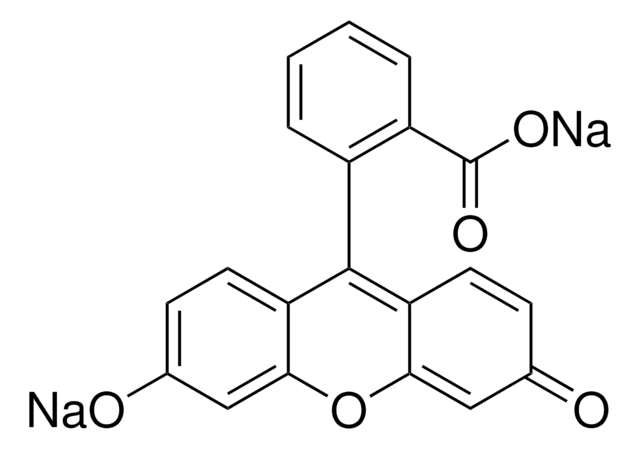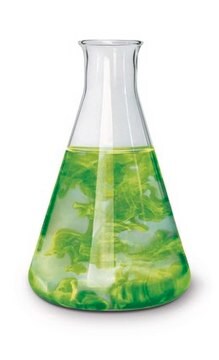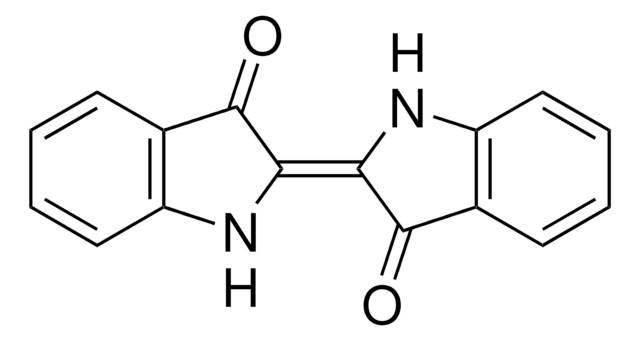30181
Fluorescein sodium salt
analytical standard
Synonyme(s) :
Acid Yellow 73, D&C;Yellow No. 8, NaFl, NaFluo, Sodium fluorescein, Uranine
About This Item
Produits recommandés
Qualité
analytical standard
Niveau de qualité
Essai
≥97.5% (HPLC)
Durée de conservation
limited shelf life, expiry date on the label
Technique(s)
HPLC: suitable
gas chromatography (GC): suitable
Impuretés
≤15% water
Fluorescence
λex 460 nm; λem 515 nm(lit.)
Format
neat
Chaîne SMILES
[Na+].[Na+].[O-]c1ccc2c(Oc3cc([O-])ccc3C24OC(=O)c5ccccc45)c1
InChI
1S/C20H12O5.2Na/c21-11-5-7-15-17(9-11)24-18-10-12(22)6-8-16(18)20(15)14-4-2-1-3-13(14)19(23)25-20;;/h1-10,21-22H;;/q;2*+1/p-2
Clé InChI
RGPLGPBQJOQFJS-UHFFFAOYSA-L
Vous recherchez des produits similaires ? Visite Guide de comparaison des produits
Description générale
Application
It may also be used as an analytical reference standard for the quantification of the analyte in the following:
- Soil samples using high-performance liquid chromatography (HPLC).
- Coffee samples using high-performance liquid chromatography (HPLC) and capillary electrophoresis (CZE).
Remarque sur l'analyse
Code de la classe de stockage
11 - Combustible Solids
Classe de danger pour l'eau (WGK)
WGK 1
Point d'éclair (°F)
423.7 °F - Pensky-Martens closed cup
Point d'éclair (°C)
217.6 °C - Pensky-Martens closed cup
Faites votre choix parmi les versions les plus récentes :
Certificats d'analyse (COA)
Vous ne trouvez pas la bonne version ?
Si vous avez besoin d'une version particulière, vous pouvez rechercher un certificat spécifique par le numéro de lot.
Déjà en possession de ce produit ?
Retrouvez la documentation relative aux produits que vous avez récemment achetés dans la Bibliothèque de documents.
Les clients ont également consulté
Notre équipe de scientifiques dispose d'une expérience dans tous les secteurs de la recherche, notamment en sciences de la vie, science des matériaux, synthèse chimique, chromatographie, analyse et dans de nombreux autres domaines..
Contacter notre Service technique






